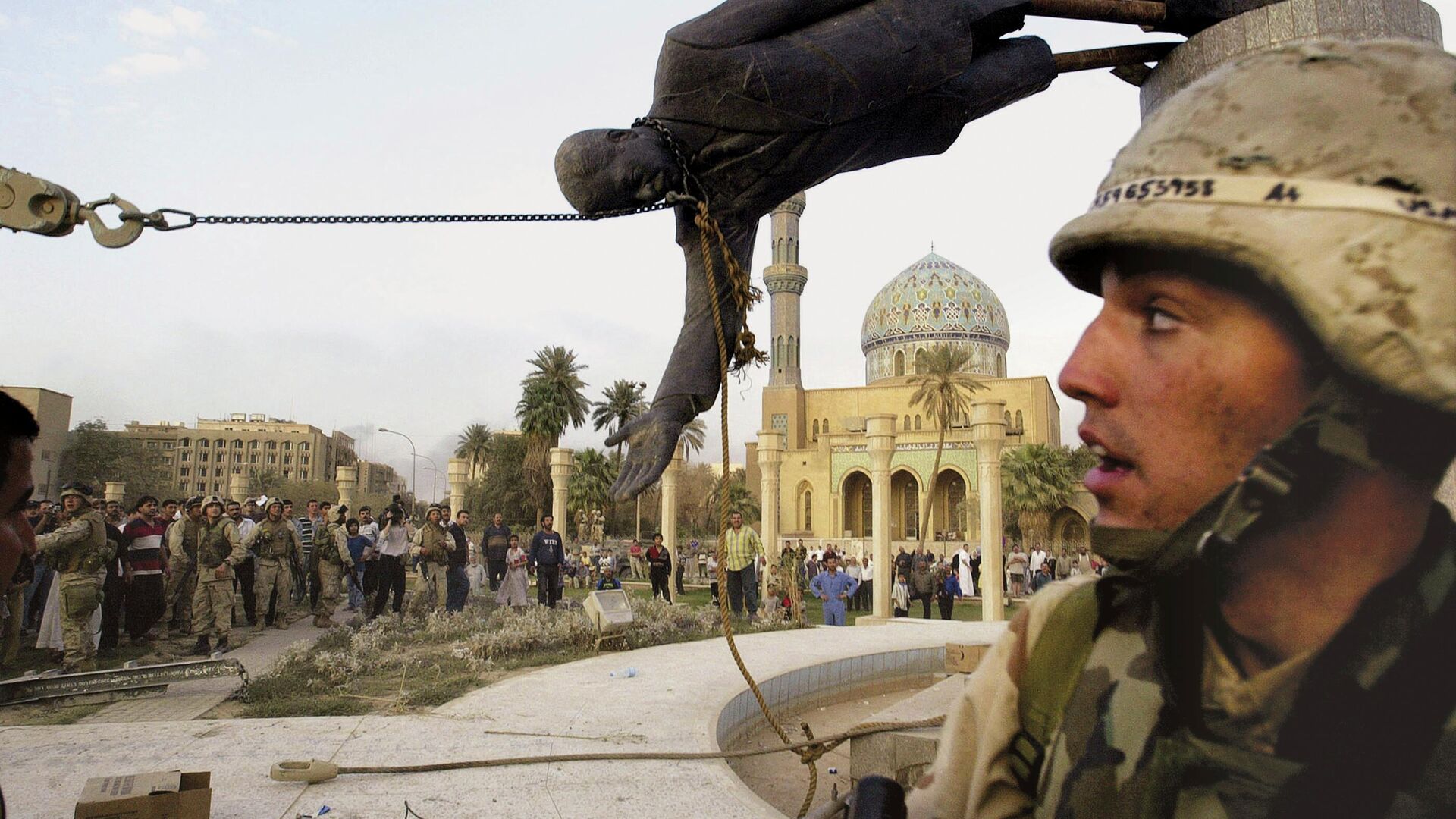CIA Nuclear Weapons Inspector Who Went Rogue Over Missing Iraqi ‘WMDs’ Dies of Cancer
12:43 GMT 23.08.2022 (Updated: 08:57 GMT 15.11.2022)

© AP Photo / Jerome Delay
Subscribe
The expert in nuclear weapons proliferation became an outcast in US intelligence circles for speaking out against the Bush administration’s lies about its justification for the US invasion of Iraq in 2003.
David A. Kay, a nuclear weapons inspector who famously concluded there were no weapons of mass destruction in Iraq, died of cancer earlier this month, his family reported.
Dr. Kay was appointed head of the CIA-led “Iraq Survey Group” in the summer of 2003. While initially believing the worst about former Iraqi President Saddam Hussein, within months, Dr. Kay would come to reject the agency’s claim that WMDs still existed in Iraq at the time of the invasion, and he stepped down from his leadership role in January, explaining in a much-discussed Senate Armed Services Committee hearing:
“We were almost all wrong, and I certainly include myself here… It turns out we were all wrong, probably in my judgment, and that is most disturbing.”
Instead of being commended for his correct assessment, Dr. Kay told PBS he was treated “coldly” upon his return to CIA headquarters in Langley.
“It’s almost comical to me—in fact, I laughed at the time because it was so much like a poor spy novel. I was given an office that didn’t have a working telephone, that was surrounded by packing cases, at the depths of Langley, with a secretary that usually wasn’t there. You’d have to have been pretty dumb not to have caught the signals of it. But not even to have a secure phone in the office where you can’t talk to anyone, nor a computer where you can email—I understood it.”
A bipartisan presidential commission confirmed in March 2005 that Dr. Kay had been correct in his findings, noting that “the Intelligence Community’s performance in assessing Iraq’s pre-war weapons of mass destruction programs was a major intelligence failure.”
“The failure was not merely that the Intelligence Community’s assessments were wrong. There were also serious shortcomings in the way these assessments were made and communicated to policymakers.”
Dr. Kay came to prominence in the early ‘90s as the head of a nuclear weapons inspection team whose surprise visit to Baghdad led to a highly-publicized four-day standoff with Iraqi security forces. Saddam’s troops ultimately allowed Kay and his team to leave with documents and tapes they considered significant.
In subsequent years, the United Nations confirmed the destruction of Iraq’s nuclear, chemical, and biological weapons research, but the CIA insisted that the deposed Iraqi leader had reconstituted such programs following his ejection of weapons inspection teams in 1998.


